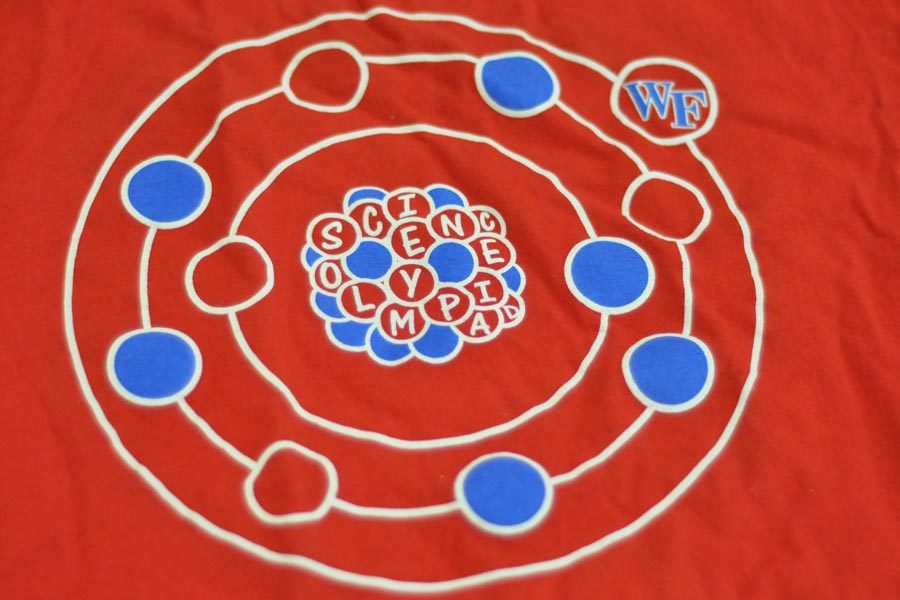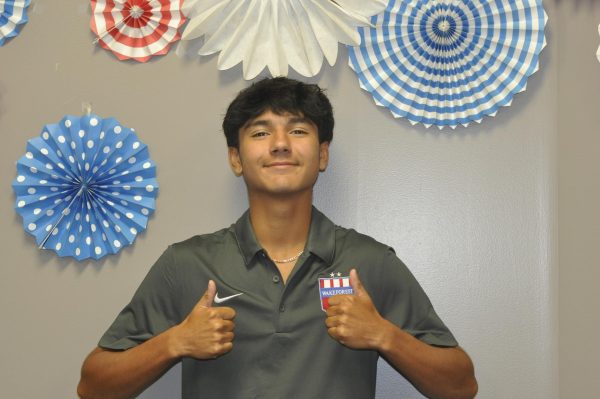Science Olympiad team tops Heritage and Wakefield
March 14, 2017
Students competed in the Science Olympiad at Southeast Raleigh High Feb. 4. The varsity team scored 12th with 255 points out of the 20 other teams, beating Heritage who placed 13th with 262 points and Wakefield who placed 14th with 279 points.
The Science Olympiad is a national tournament against other schools in different science subjects. Ranging from Astronomy to Rocks and Minerals, the Olympiad can be something truly challenging.
“We did both better and worse than last season,” said Tara Wojciechowski, Science Olympiad advisor. “We placed in more events and got more medals, but we scored lower as a team.”
The Science Olympiad team is becoming more experienced and broadening their horizons.
“I think we are improving. We are expanding and doing more events,” sophomore Jack Davis said.
The junior varsity team came in second to last out of nine teams due to not competing in all the events.
“For both sides, the events we scored the worst in were the ones we didn’t enter, which automatically gives you an awful score of one point higher than the number of teams competing,” Wojciechowski said.
Due to the 20 teams that participated, events not participated in would give a score of 21. The Olympiad, working like golf or cross country, calculates for the team with the lowest score to win.
Even though the Science Olympiad team has fewer teams than some other schools do, they still do very well compared to other schools.
“I am not going to force kids to do events that they have no interest in, so we choose to just not compete in some events, which negatively impacts our team pretty harshly,” Wojciechowski said.
The Olympiad has building and testing events, depending on the category that students prepare for. Building events are more hands-on projects like Bottle Rockets, in contrast to testing events.
“The students prepare on their own by looking up event resources that are published by the North Carolina Science Olympiad website and getting ideas for what their tests might look like and building what needs to be built according to the rules for the event,” Wojciechowski said.
The events can be difficult at times, and diligent practice beforehand is a good way to go.
“For building, I start a few weeks earlier and test it, but if it’s testing I like to study before,” Davis said.
The next step to take is making sure that junior Denver Massey and senior Mason Butler, who scored first place in Optics, are prepared for States in April in the Optics event.
Even if a team doesn’t make states, the first place overall winners are able to go. It is possible for the whole team to go to state, but it isn’t easy.
“It’s getting harder after this year for the whole team to get to state, but the whole team advancing to state would be the next step,” sophomore Aidan Moore, the second captain of the team said.
Improving the score and having interested kids in science is something that the Olympiad needs and wants.
“Next year, we’ll try to improve upon our team performance that we had this year by trying to have students interested in entering every single event,” Wojciechowski said.
Above all, having fun is the greatest thing to have in the Science Olympiad.
Davis said, “We are not as strict, but we just like to have fun. It’s more about fun than winning.”



